Professional Courses
Industry-relevant training in Business, Technology, and Design
Categories
Interactive Games
Fun games to boost memory, math, typing, and English skills
Typing
Memory
Math
English Adventures
Knowledge
A Complete Guide to JEE Main Attempts
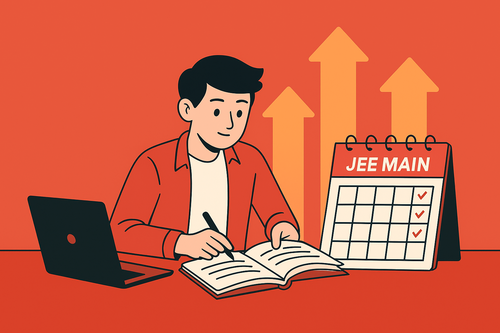
If you're gearing up for JEE Main, you've probably wondered, "How many shots do I actually get at this exam?" It's a crucial question, and the answer is more than just a number, it's a key part of the strategy that will shape your entire engineering journey. This guide breaks everything down for you in a simple, conversational way.
We'll walk you through the number of attempts allowed, the session-wise rules, eligibility criteria, and smart planning tips. We'll also cover common mistakes to avoid and how your attempts can affect your college admission strategy. Whether you're in Class 11, 12, or taking a drop year, you're in the right place.
Total JEE Main Attempts Allowed: The Current Rules
As of 2025, the National Testing Agency (NTA) provides a clear and flexible framework for attempts. The rule is simple yet significant: a candidate is eligible for three consecutive years, starting from the year they pass their Class 12 (or equivalent) examination. Within each of these three years, the NTA conducts the exam in two sessions, typically in January and April.
Let's do the math: $$Maximum Attempts = 3 \text{ years} \times 2 \text{ sessions/year} = 6 \text{ total attempts}$$
This structure is a game-changer compared to older formats of engineering entrances. It’s designed to reduce pressure and give you multiple opportunities to prove your mettle. Think of it not as six chances to fail, but as six opportunities to learn, adapt, and hit your peak performance. A bad day during one exam doesn't have to derail your entire year's hard work.
Understanding the Session System: A Strategic Deep Dive
Each year, JEE Main is held in two sessions. Choosing when to appear and how to approach each session is a critical strategic decision. Let’s break down the pros and cons of each.
The January Session: The First Mover’s Advantage
Held in the first few weeks of January, this session happens before the board exam marathon begins.
Pros:
- Lower Pressure: The competition is often perceived as slightly less intense, as many Class 12 students are still finalising their syllabus. This can lead to a better percentile for the same score.
- Early Benchmark: This attempt serves as a perfect diagnostic test. You get a real-time analysis of your strengths and weaknesses against national competition, giving you a clear roadmap for the April session.
- Board Exam Buffer: A good score in January can be a massive confidence booster, allowing you to focus on your board exams without the lingering stress of the engineering entrance.
Cons:
- Syllabus Crunch: For many Class 12 students, the syllabus might not be 100% complete by January, especially for topics covered late in the school year.
- Clash with Pre-Boards: This session often clashes with pre-board examinations in many schools, creating a scheduling nightmare and dividing your focus.
The April Session: The Final Showdown
Conducted after the board exams are over, this is often seen as the main event.
Pros:
- Ample Preparation Time: You get an additional 2-3 months after the January attempt to revise, plug conceptual gaps, and work on your weaknesses.
- Post-Boards Focus: With the pressure of board exams off your shoulders, you can dedicate 100% of your energy to JEE preparation.
- Full Syllabus Coverage: By April, every student has had the chance to complete their entire Class 11 and 12 syllabus thoroughly.
Cons:
- Higher Competition: The pool of well-prepared candidates is larger, and everyone is giving it their best shot. This can mean you need a higher score to achieve the same percentile as in January.
- Risk of Burnout: After months of intense study for boards and entrances, fatigue can set in, potentially affecting your performance.
Should You Appear for Both Sessions?
Absolutely, yes. It is highly recommended to attempt both sessions. Here’s why:
- Best of Two: The NTA considers your best score of the two sessions for the final merit list. This is a safety net that significantly increases your chances of success.
- Priceless Experience: The January attempt gives you a feel for the real exam environment—the pressure, the time constraints, the user interface—which no mock test can fully replicate.
- Strategic Readjustment: It gives you a valuable reality check, allowing you to fine-tune your strategy for the April attempt.
Eligibility Criteria for JEE Main Attempts
Academic Qualification
You must have passed your Class 12 or an equivalent examination with Physics and Mathematics as compulsory subjects, along with Chemistry, Biotechnology, Biology, or a Technical Vocational subject.
A common point of confusion is the 75% criteria (65% for SC/ST). Please note: this is not an eligibility criterion to appear for JEE Main. It is an admission criterion for securing a seat in NITs, IIITs, and some GFTIs. You can write the exam even with a lower percentage, but you won't get admission into these top institutes.
Year of Passing
The three-year eligibility clock starts ticking from the year you pass your Class 12 exam. Let’s clarify with examples:
- Passed in 2024: You are eligible for all sessions in 2024, 2025, and 2026.
- Passed in 2025: You are eligible for all sessions in 2025, 2026, and 2027.
- Passed in 2023: Your final year of eligibility is 2025.
This rule is strict and consecutive. Skipping a year does not pause the clock.
Age Limit
There is no age limit to appear for JEE Main. However, individual institutes, especially the IITs (for which you qualify via JEE Advanced), may have their own age criteria for admission. Always check the specific admission policies of the colleges you are targeting.
The Ultimate Strategy to Plan Your JEE Attempts
A good strategy separates the top performers from the rest. Here’s how to plan your journey.
1. The Class 11 Foundation
- First 6 Months: Focus purely on building strong conceptual foundations. Don't rush. Understand every topic in Physics, Chemistry, and Math from first principles.
- Last 6 Months: Begin applying concepts to solve JEE-level problems. Start with the previous years' JEE Main questions to understand the pattern. You can explore foundational courses to get ahead.
2. The Class 12 Balancing Act
- July - December: This is the toughest phase. You need to balance your board syllabus with advanced JEE preparation. Create an integrated timetable. Study a chapter for boards, then immediately solve JEE-level problems on it.
- January: Your entire focus should be on the first JEE Main attempt. Take as many mock tests as possible.
- February - March: Switch gears completely to board exams. A good board percentage is crucial.
- April: This is the final sprint. Use the gap after boards exclusively for JEE revision, focusing on weak areas identified in the January attempt.
3. The Drop Year Blueprint: Treating It Like a Full-Time Job
Taking a drop year is a courageous decision. Make it count.
- Phase 1 (First 3 Months): Diagnosis and Repair. Don't just re-study everything. Analyse your previous attempts. What went wrong? Was it a lack of conceptual clarity, silly mistakes, or poor time management? Fill these specific gaps first.
- Phase 2 (Next 4 Months): Advanced Application. This is where you master problem-solving. Focus on advanced-level problems and join a high-quality JEE Main test series.
- Phase 3 (The Final Push): Simulation and Refinement. In the last two months, your life should revolve around mock tests. Analyse every single test. Maintain an error log. Consider JEE Main coaching courses for structured guidance.
Real Example: Rishi's Journey Through 6 Attempts
Let’s revisit the story of Rishi, who passed Class 12 in 2023, and see what his journey truly looked like.
- 2023 Jan (83 percentile): Rishi was underprepared. He had neglected Class 11 topics and focused only on the Class 12 syllabus.
- 2023 Apr (89 percentile): He revised Class 11 topics but did so superficially. His time management during the exam was poor, and he panicked in the Physics section. This score wasn't enough for the NIT branch he wanted. He decided to take a drop.
- The Drop Year: Rishi didn't just re-read his books. He joined a test series and realised his core problem was application, not knowledge. He spent months just solving problems and analysing his mistakes.
- 2024 Jan (91 percentile): His score improved, but he was still making silly calculation errors under pressure. His error log became his best friend.
- 2024 Apr (95 percentile): The improvement was significant. He had mastered time management.
- The Final Push (2025): He knew he was close. For his final attempt, he focused entirely on mock tests and deep revision of his weak topics.
- 2025 Jan (98.4 percentile): Success. He had turned his failures into lessons and secured a seat in Mechanical Engineering at NIT Trichy.
Critical Mistakes to Avoid Across Attempts
1. Skipping the January Session, Thinking You’re “Not Ready”
This is the most common mistake. No one is ever 100% ready. This attempt is a free, high-stakes diagnostic test. Skipping it is a massive strategic loss.
2. Repeating the Same Ineffective Study Methods
Albert Einstein reportedly said, "Insanity is doing the same thing over and over and expecting different results." If your scores aren't improving, your method is flawed. Explore new ways to learn and revise to find what works for you.
3. Ignoring Your Error Log
An error log is your personal roadmap to a better score. It tells you exactly what to fix. Ignoring it is like a doctor ignoring a patient's symptoms. Document everything:
- Conceptual Errors (You didn't know the concept)
- Silly Mistakes (You knew it, but made a calculation error)
- Time Management Errors (You knew it, but didn't have time)
4. Neglecting Your Physical and Mental Health
Burnout is real. You are not a machine. Ensure you get 7-8 hours of sleep, eat nutritious food, and take short breaks. A tired mind cannot solve complex problems.
How JEE Attempts Affect College Options
Your best JEE Main score is a gateway to over 30 NITs, 25 IIITs, and numerous Government Funded Technical Institutes (GFTIs). A score above the 97-98th percentile can land you in top-tier NITs like Trichy, Warangal, and Surathkal. Scores in the 90-96th percentile can secure you a place in other NITs and top IIITs.
Scoring Benchmarks: What Your Percentile Means
- 99+ Percentile: You are in the top 1% of all candidates. You have a strong chance of getting into the top 3 NITs with a core engineering branch (like Computer Science, ECE). You will comfortably qualify for JEE Advanced.
- 95–98 Percentile: You are in a great position. You can expect admission to core branches in very good NITs and IIITs across the country.
- 90–94 Percentile: This score range may secure you a place in newer NITs, non-core branches in mid-tier NITs, or top private universities.
- Below 85 Percentile: Don't lose hope. This is a clear signal to re-evaluate your strategy and use your remaining attempts to make a significant jump.
FAQs on JEE Main Attempts
Can I appear for only one session per year?
Yes, you can. But as explained, attempting both is strategically far superior.
Do I need to register separately for both sessions?
Yes. The NTA opens the application portal separately for each session. You must fill out the form and pay the fee for each session you wish to attempt.
If I skip a year, do I lose all my attempts for that year?
Yes. The eligibility is for three consecutive years. If you pass Class 12 in 2024 but don't appear for any session that year, you still lose the two attempts for 2024. Your eligibility will continue for 2025 and 2026.
Is there a limit on attempts for JEE Advanced?
Yes, and it's much stricter. A candidate can attempt JEE Advanced a maximum of two times in two consecutive years.
Final Thoughts
Your JEE Main journey is a marathon, not a sprint. It’s not just about “how many times” you can attempt the exam, but about how well you use each precious opportunity.
Whether it’s your first or sixth attempt, remember:
- Every session gives invaluable feedback.
- Every mistake is a lesson in disguise.
- You only need one great attempt to achieve your dream.
Plan smart. Stay consistent. And most importantly, believe in your ability to improve. With the right strategy and support from platforms like AllRounder, you can turn JEE Main into your stepping stone to the top engineering colleges in India.

Learn how negative marking works in JEE Main 2025 and how to avoid it with practical, proven strategies.

Learn how to prepare for JEE Main 2025 with a proven, winning strategy. Get a detailed plan, subject-wise tips, and...

Learn the chapter-wise weightage for JEE Main 2025 across Physics, Chemistry, and Maths. Prioritise smartly and...

Discover the most important chapters for JEE Main 2025 across Physics, Chemistry, and Maths. Focus your prep smartly...
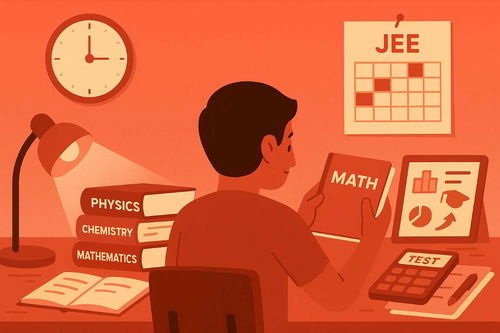
Discover top JEE Main books for Physics, Chemistry & Maths. Learn how NCERT & reference books pair with AllRounder.
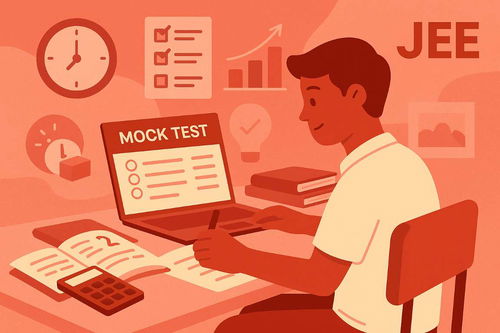
Looking for free JEE Main mock tests to boost your preparation? Discover the best platforms, tips, and strategies to...
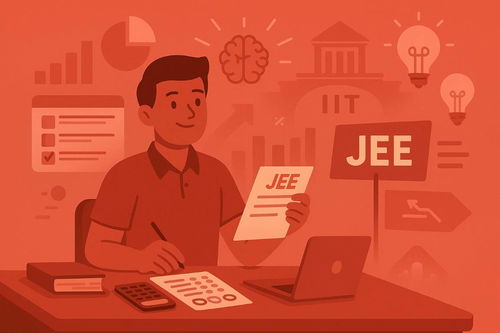
Discover what scores and percentiles are needed to secure seats in top NITs, IIITs, and GFTIs. Learn how category...
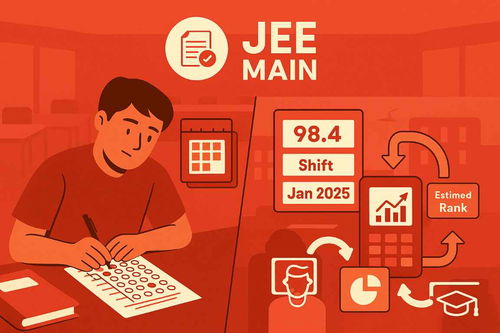
Understand the exact difference between JEE Main percentile and rank. Learn how scores are normalized across...

Understand the JEE Main scoring system to maximize your result. Learn the marking scheme, how to handle negative...

Confused about the JEE Main attempt limit? This guide clarifies how many times you can appear, the eligibility...

Wondering how many times you can appear for JEE Mains? This guide explains the total attempts allowed, session...
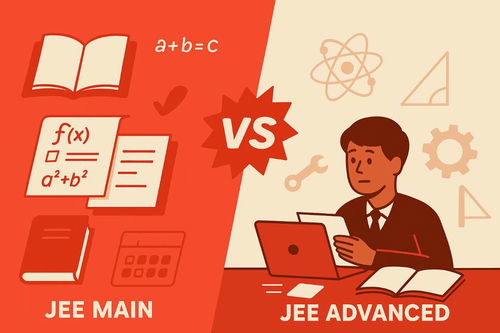
Discover the key differences between JEE Main and JEE Advanced in terms of syllabus, pattern, difficulty, and prep...

Confused about JEE Main qualification rules? This blog gives you a detailed checklist of eligibility criteria,...
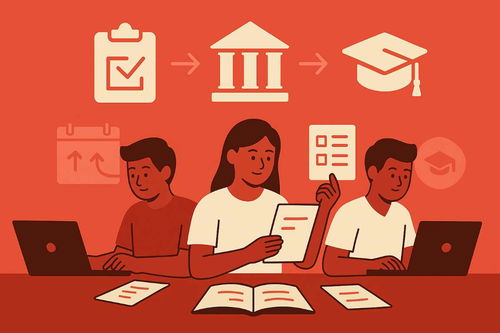
Explore this simple, step‑by‑step guide to the JEE Main counselling process. Learn how to register, fill choices,...

Curious about how many times SC students can attempt JEE Main? This complete guide covers JEE Mains attempt rules,...
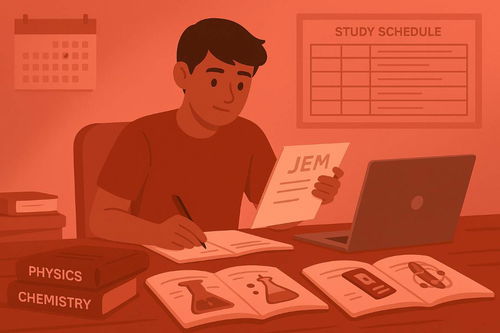
Want to score 200+ in JEE Main? This practical guide gives you proven tips, subject-wise strategies, mock test...

Wondering how the JEE Main exam is structured? This complete guide breaks down the official JEE Main exam pattern...
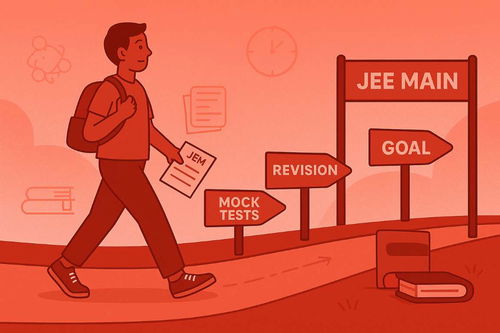
Learn how to crack JEE Main on your first attempt with proven strategies. This guide covers planning, conceptual...
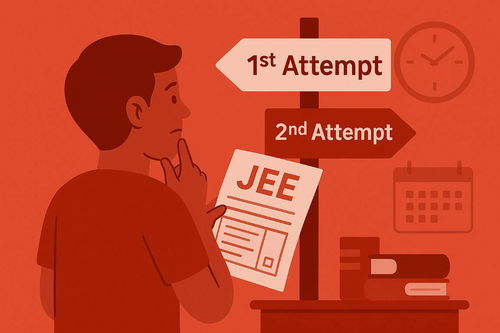
Learn how many JEE Main attempts you can take after Class 12. This guide covers eligibility, attempt limits, subject...
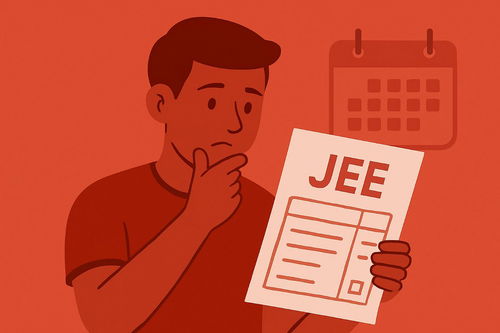
Learn about the JEE Main age limit requirement and key eligibility rules. Understand the attempt policy, Class 12...

Discover the most important topics for the JEE Main exam in Physics, Chemistry, and Mathematics. Learn subject-wise...
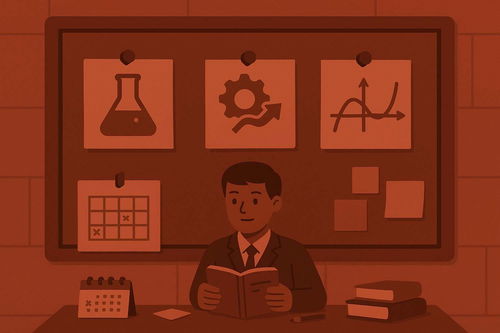
Get a subject-wise preparation strategy for JEE Main step-by-step using smart tips and trusted resources from AllRounder.ai.

Looking to score high in JEE Main 2026? Discover expert preparation tips on creating smart study plans, mastering...

Confused about JEE Mains eligibility? This detailed guide explains JEE Mains eligibility criteria including...
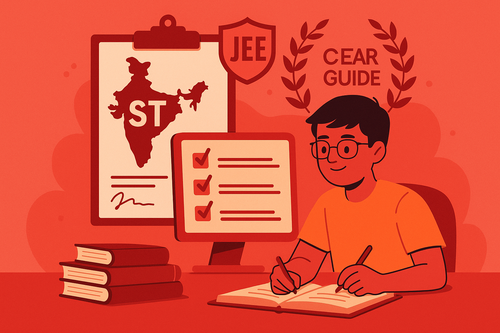
Confused about JEE Main Attempts for ST Category? This detailed guide covers attempt limits, age relaxations,...
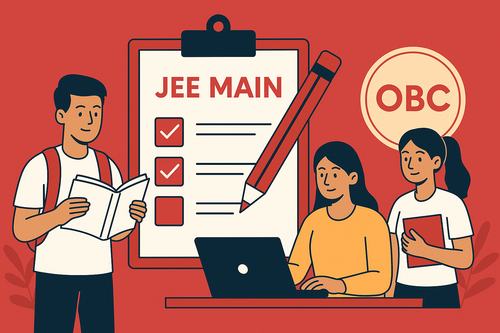
Wondering how many times OBC candidates can appear for JEE Mains? This detailed guide explains JEE Main Attempts for...

Dropping a year for JEE Mains? This in-depth strategy guide helps droppers optimise their JEE Main attempts with...
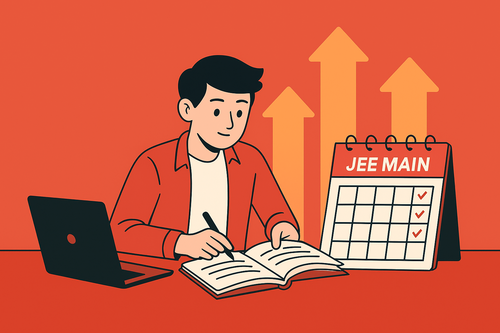
Confused about how many times you can appear for JEE Main? This guide explains the number of JEE attempts, session...
Resources
-
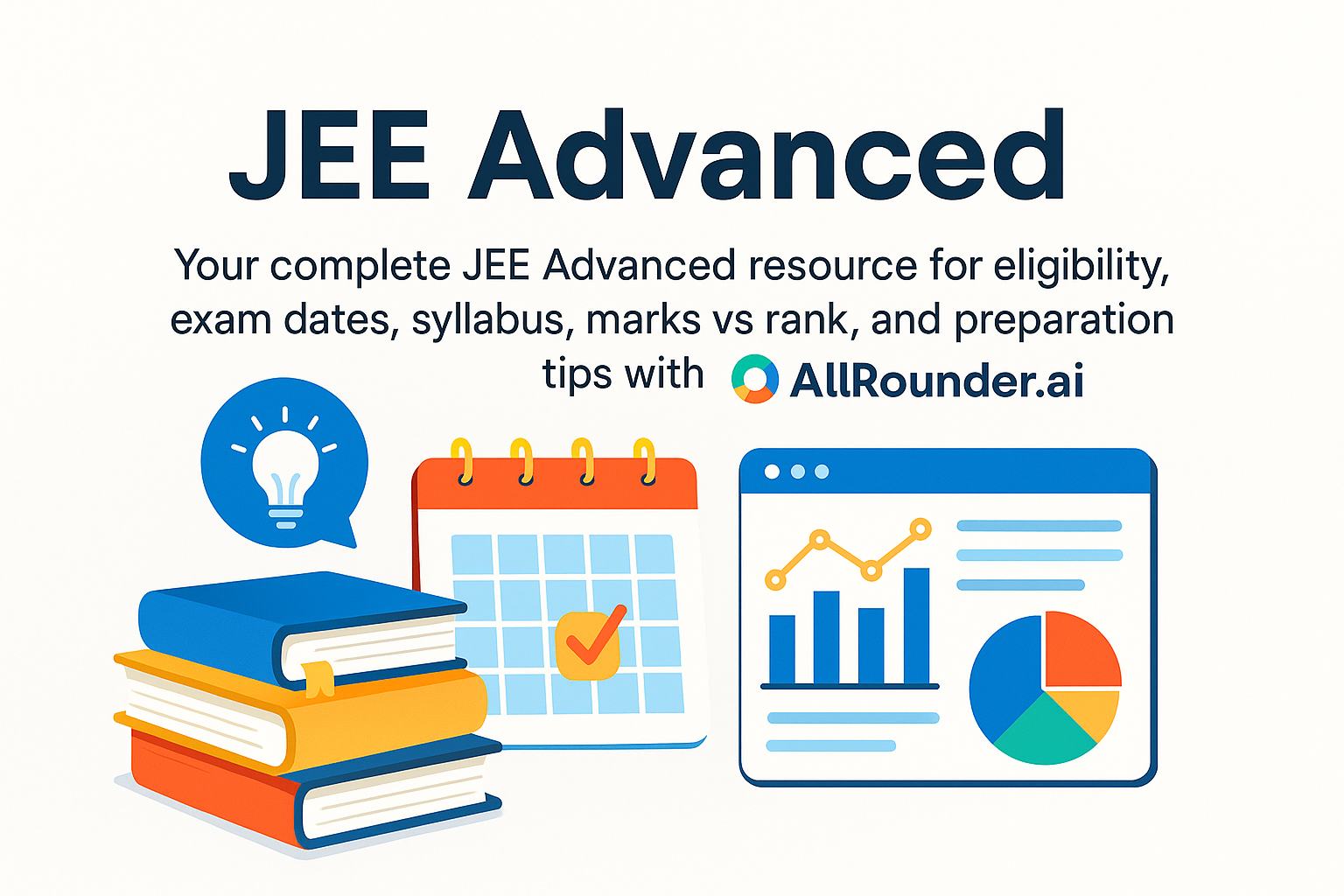
Your complete JEE Advanced resource for eligibility, exam dates, syllabus, marks vs rank, and...
-
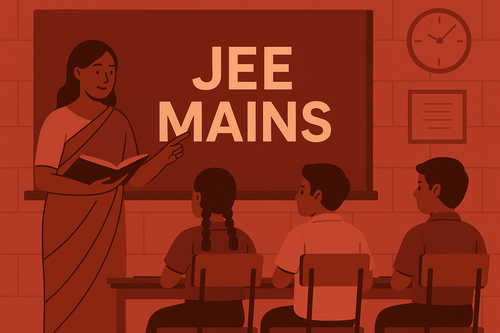
Understand the entire JEE Main process, from application and eligibility rules to the exam...
-

Explore the IB Board – a global curriculum emphasizing holistic, student-centered learning...
-

Learn about CBSE – India’s national school board offering a standardized curriculum, NCERT...
-

Explore everything about the ICSE board – its curriculum, subjects, exam format, and academic...
